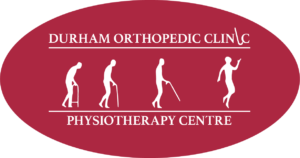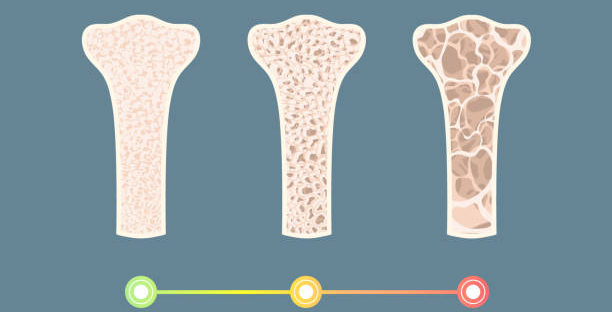Osteoporosis is a bone disease that is caused by the loss of calcium in the bones, resulting in them becoming more brittle. This leads to a decrease in bone strength and bone structure resulting in an increased risk of fracture, especially in the hip and spine. It is a major cause of disability, causing pain and affecting one’s quality of life.
Bone is living tissue and there is a balance between the natural cycle of degeneration and regeneration of bone. In osteoporosis, bones weaken when not enough new bone is formed (regeneration) and too much bone is lost (degeneration).
Most at Risk Groups
Post-menopausal women are at the greatest risk of developing osteoporosis and have a greater risk of developing osteoporosis, especially if:
- They are Caucasian or Asian
- Have a small frame
- Are inactive
- They are smokers
- Have a family history of osteoporosis
- Have used medications such as steroids or thyroid hormone for a long period of time
- Have calcium or Vitamin D deficiency
How is Osteoporosis Diagnosed
Osteoporosis is best diagnosed through a specialized x-ray called the DXA which measures bone density. Other methods of measuring bone density may include an x-ray, ultrasound or CT scan.
Treatment
Physiotherapy can offer personalized treatment to help improve your overall bone health and help you avoid fractures. The exercises help with bone building by sufficiently stressing the bone. Bone gets stronger with exercise just as muscles get stronger with exercise. The three types of exercises used are weight bearing exercises, resistance exercises and postural exercises.
Weight-bearing exercises may include:
- Walking
- Dancing
- Hopping or stomping
- Easy jogging
Resistance exercises may include:
- Weight lifting in proper spine and lower extremity alignment
- The use of resistance bands
- Gravity resistance exercises such as push ups, squats, standing yoga poses
Postural exercise:
- Exercises to reduce or stabilize the increased kyphosis (hunchback) that is often seen with people with osteoporosis
- Education on correct posture and exercises to help maintain ideal posture
- Exercises to improve your balance to avoid falls
Contact the Durham Orthopedic & Sports Injury Clinic at 905-428-7800 if you are seeking help from our physiotherapist managing your osteoporosis.


